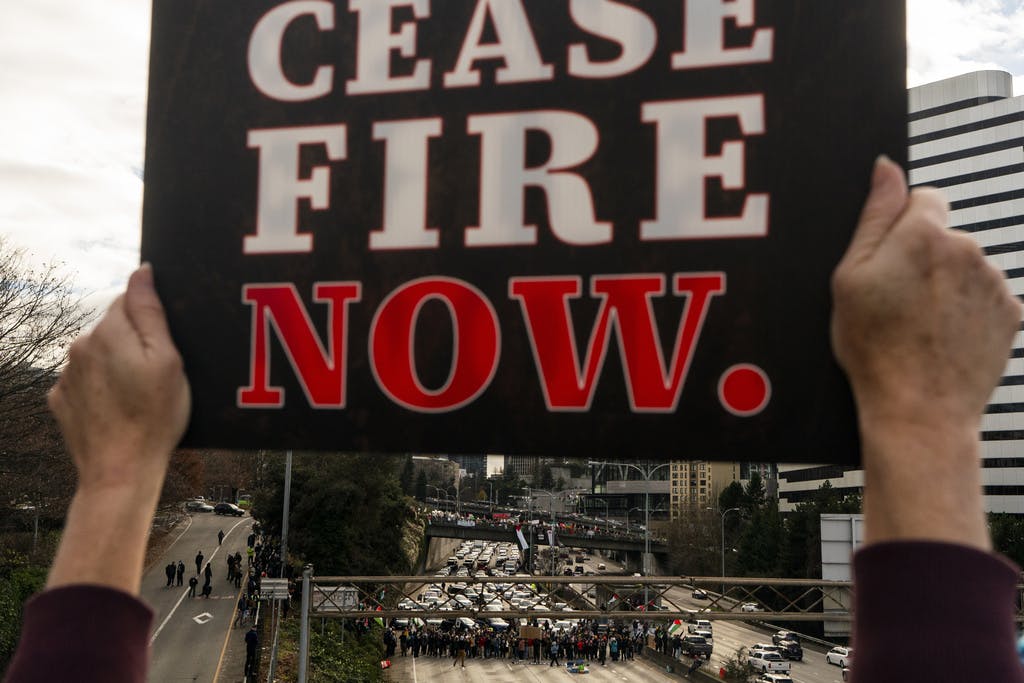Congress Subpoenas Legal Union That Called for ‘an End to the Israeli Occupation of Palestine’ Over Its Members’ Objections
The matter could lead to legislation restraining the ability of unions to issue political statements that go against the fundamental beliefs or political views of their members.

Congress will serve a subpoena to the union representing Legal Aid lawyers after the union allegedly failed to comply with an investigation into an anti-Israel resolution that misrepresented the views of more than a third of its members.
The resolution calling for a “cease-fire in Gaza, an end to the Israeli occupation of Palestine, and support for workers’ political speech” drew opposition from nearly 35 percent of 1,637 voters in the Association of Legal Aid Attorneys when it was adopted in December. Yet it was passed anyway, sparking backlash within the legal world and now within the halls of Congress.
Congresswoman Virginia Foxx is demanding the union present documentation relating to that “contentious vote on a controversial resolution,” as she put it Monday in a letter to the president of the Association of Legal Aid Attorneys, Lisa Ohta. The matter could lead to new legislation halting the ability of unions to issue political statements that go against the fundamental beliefs or political views of their members.
Critics see the Congressional probe as a crackdown on pro-Palestinian speech and a potential First Amendment violation. The Sun reached out to several of the legal organizations represented by the Association of Legal Aid Attorneys, which did not respond or declined to comment on the matter. The Committee’s Democratic leader, Congressman Bobby Scott, declined to comment for this story.
The Committee, though, is not seeking to regulate the political activity of the union. Rather, it seeks to protect the First Amendment rights of union members. Those rights were affirmed by the Supreme Court in the 1988 case, Communications Workers of America v. Beck, which affirmed that union members be notified of their rights and how to withhold the portion of dues used for political activity.
In January, Ms. Foxx launched her oversight inquiry into Legal Aid, or Local 2325, which represents more than 3,000 public defenders and legal employees at New York City. She is waging this battle on behalf of the House Education and Workforce Committee, which she chairs, as part of a series of probes into antisemitism in the ivory towers of elite universities and on the picket lines of labor unions.
The resolution on Gaza “forced Jewish members of Local 2325 to take a critical position on their faith, Israel, and Israel’s sovereignty,” Ms. Foxx said in January in a letter to Ms. Ohta. The letter was shared with the Sun. This created a “conflict of interest,” the letter went, “and an ethical dilemma in their practice of law.”
Four of the union’s own members have sued over the resolution, Ms. Foxx said. Another group of attorneys, the Bronx Independent Lawyers for Justice, said it was “outraged” by the union’s “bigoted and antithetical position on revisionist history” and called the union declaration “Hamas propaganda.”
In February, the committee granted Local 2325’s legal representative additional time to produce documentation relating to the resolution on Gaza and the backlash it provoked from its members. Yet the representative later made clear they were declining to comply with this request for materials. “This is unacceptable,” Ms. Foxx writes, “and as a result, the Committee must now resort to compulsory process.”
Local 2325 is now legally obliged to provide Congress the requested documentation by March 25. The union’s policies more generally, including its disciplinary procedures, are also being scrutinized. The committee is considering developing legislation to ensure bargaining unit members know their rights and that they are respected by union leaders — or, in this case, that lawyers follow the law.
Potential legislation could reform the National Labor Relations Act of 1935, or the Wagner Act, which guarantees the rights of private sector employees to unionize. Also at stake is the Labor Management Reporting and Disclosure Act of 1959, which governs labor unions’ internal affairs and their officials’ relationships with employers.

